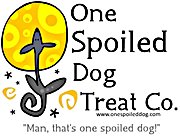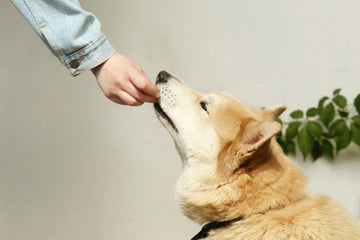As a pet owner, choosing the best food and treats for your dog is a top priority. Grain-free diets, including grain-free treats, have gained significant popularity in recent years, especially for dogs with food sensitivities or allergies. But are grain-free treats the right option for every dog? Understanding the benefits and concerns surrounding grain-free treats can help you make the best decision for your furry friend.
What Are Grain-Free Dog Treats?
Grain-free dog treats are made without grains like wheat, corn, or soy. Instead, they typically use alternative ingredients such as sweet potatoes, peas, chickpeas, lentils, or meat as their primary components. These treats are often marketed as being more natural and better suited to a dog’s ancestral diet, which was high in protein and low in carbohydrates.
Grain-free treats appeal to pet owners looking for options to address issues like digestive problems, food allergies, or sensitivities in their dogs. However, they may not be necessary or even beneficial for every dog.
Benefits of Grain-Free Treats
Grain-free treats can offer several advantages, particularly for dogs with specific dietary needs or preferences:
1. Improved Digestive Health
Some dogs struggle to digest grains like wheat, soy, or corn, which can lead to bloating, gas, or diarrhea. Grain-free treats made with alternative ingredients like sweet potatoes or peas may be easier on the stomach for dogs with grain sensitivities.
2. Relief from Allergies and Sensitivities
Grains are a common trigger for food allergies in dogs. Symptoms of grain allergies include itchy skin, ear infections, and gastrointestinal issues. Switching to grain-free treats can help alleviate these symptoms by removing the offending ingredients.
3. Higher Protein Content
Grain-free treats often use meat or fish as their primary ingredient, resulting in a higher protein content. This is ideal for dogs who thrive on a diet rich in animal proteins, which support muscle development and energy levels.
4. Weight Management
Some grain-free treats incorporate low-calorie, high-fiber ingredients like pumpkin or sweet potatoes, which help dogs feel full while consuming fewer calories. These can be a great option for dogs on a calorie-controlled diet.
Concerns About Grain-Free Treats
While grain-free treats offer benefits, they’re not a universal solution. Here are some potential drawbacks to consider:
1. Not All Grain-Free Treats Are Healthy
Grain-free doesn’t always mean better. Some grain-free treats may still contain low-quality or highly processed ingredients, such as fillers, artificial preservatives, or excessive starch from potatoes or peas. It’s essential to read the ingredient label and choose treats with whole, high-quality components.
2. Potential Link to Heart Disease
Recent studies have suggested a possible connection between grain-free diets—especially those high in legumes like peas and lentils—and canine dilated cardiomyopathy (DCM), a serious heart condition. While the exact cause is still under investigation, it’s a concern worth discussing with your veterinarian, particularly for breeds predisposed to heart disease.
3. Nutritional Balance Issues
Grains provide certain nutrients, such as fiber and B vitamins, which may be lacking in some grain-free products. If your dog’s diet is already grain-free, adding grain-free treats could further reduce their intake of these important nutrients.
4. Cost Considerations
Grain-free treats are often more expensive than traditional options due to the use of alternative ingredients like premium meats and vegetables. While the added cost may be worth it for dogs with specific dietary needs, it can be a factor for budget-conscious pet owners.
How to Determine if Grain-Free Treats Are Right for Your Dog
Deciding whether to include grain-free treats in your dog’s diet depends on their unique health needs and lifestyle:
-
Does Your Dog Have a Grain Sensitivity or Allergy?
If your dog experiences digestive upset, itchy skin, or other signs of a food allergy, switching to grain-free treats might help alleviate these symptoms. -
Is Your Dog’s Diet Already Grain-Free?
If your dog’s primary food is grain-free, adding grain-free treats can help maintain consistency in their diet. However, ensure their overall diet is balanced and provides all necessary nutrients. -
What Are Your Dog’s Health and Breed Considerations?
Certain breeds are more prone to heart conditions like DCM. If your dog belongs to one of these breeds or has a history of heart issues, consult your vet before incorporating grain-free treats. -
Are You Managing Your Dog’s Weight?
Grain-free treats made with low-calorie, high-fiber ingredients can be a good option for dogs on a weight loss plan, as long as they’re chosen carefully.
How to Choose Healthy Grain-Free Treats
If you decide to try grain-free treats for your dog, keep these tips in mind:
-
Check the Ingredient List
Look for treats with simple, whole-food ingredients like chicken, sweet potatoes, or pumpkin. Avoid products with fillers, artificial preservatives, or vague terms like “meat by-products.” -
Prioritize Nutritional Balance
Choose treats that complement your dog’s diet, providing protein, fiber, and essential vitamins. -
Consider Low-Calorie Options
If weight management is a goal, select treats specifically designed to be low in calories and rich in fiber. -
Consult Your Veterinarian
Discuss your dog’s dietary needs and health history with your vet to ensure grain-free treats are a safe and beneficial choice.
Conclusion: Are Grain-Free Treats Right for Your Dog?
Grain-free treats can be an excellent option for dogs with food sensitivities, allergies, or digestive issues. They may also benefit dogs who need higher protein levels or are on a weight management plan. However, they’re not a one-size-fits-all solution.
Before making the switch, consider your dog’s individual needs, consult your veterinarian, and choose high-quality treats with wholesome ingredients. Whether or not you go grain-free, the most important factor is providing a balanced, nutritious diet that supports your dog’s long-term health and happiness.





